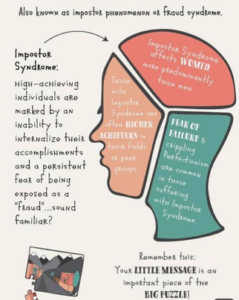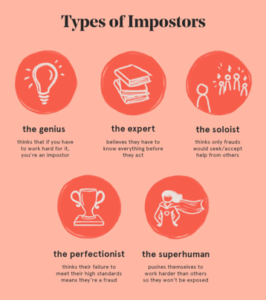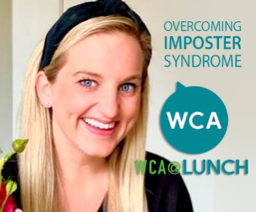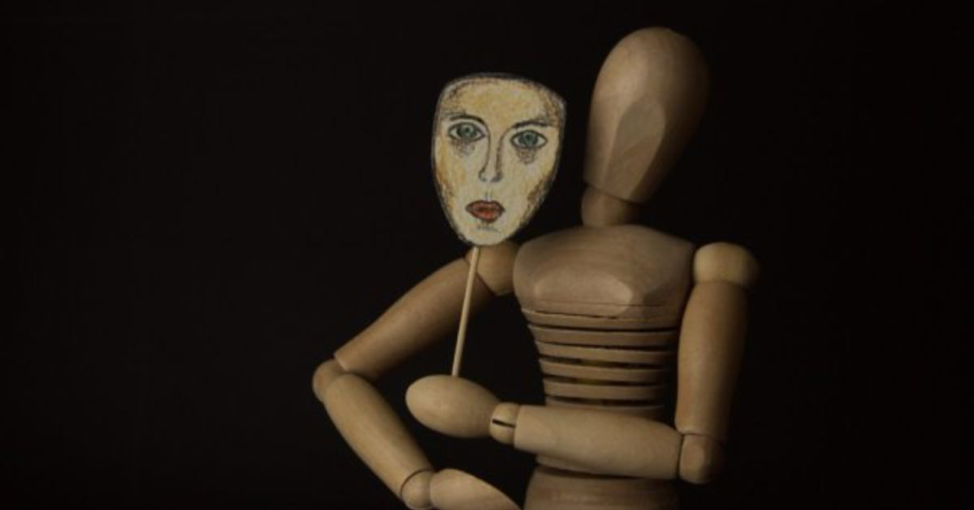Hi, my name is Jane Baxter Lynn and I have (or suffer from) imposter syndrome.
Why do you care? Because many of you may be challenged by this feeling of not being enough, of guilt for being too much, or simply inadequacy, without understanding why.
I’ve been incredibly fortunate to have had and continue to have a wonderfully fulfilling and interesting life. However, throughout my professional life, I’ve had the looming sense that something will go wrong and that I’m a fraud in some way, sometimes to the detriment of my career. There have been some ‘failures’ that, in hindsight, I may have brought upon myself because of this feeling of being an imposter or simply not good enough.
Until fairly recently I didn’t know it had a name or that it was a real thing. What a relief it was to finally understand that this illogical feeling I have had throughout my career wasn’t simply me being ridiculous. It has a name and it’s a fairly common phenomenon. Imposter Syndrome. And, most importantly, it happens to the best of us.
One of my sheroes, Maya Angelou is widely quoted on this subject – “I have written eleven books, but each time I think “uh oh, they’re going to find out now. I’ve run a game on everybody, and they’re going to find me out.” Maya Angelou always had a nagging doubt that she had not really earned her accomplishments.
Last month WCA presented a great virtual program on this topic with leadership coach Caroline Crawford who shared with us the reasons why people suffer from Imposter Syndrome and what we can do to help ourselves and others overcome it.
The program came about because members in attendance at a recent WCA Careers Over Coffee shared that imposter syndrome could be paralyzing and it was hard to move outside of the feeling. Some noted that our constant isolation throughout the pandemic has made the problem worse at times too. Everyone was left wondering why this feeling was pervasive at times, and how you can combat it. They were ready to continue the discussion with an expert.
But first what is Imposter Syndrome? It’s a person’s inner critic, that voice in your head that convinces you to doubt your skills, talents or accomplishments and gives you a persistent internalized fear of being exposed as a fraud. Usually, despite external evidence of your competence, you remain convinced of your fraudulence and that you don’t deserve what you have achieved (adapted from Wikipedia).

Image credit: https://www.withakwriting.com/impostor-syndrome
According to Caroline, people who suffer from imposter syndrome are usually high achieving individuals or go getters. There’s a major feeling of failure and perfectionism, marked by an inability to internalize their accomplishments and a persistent fear of being exposed as a fraud or a deceiver. And then there’s just this feeling of ‘Can I do this?’
She assured us that this is so normal, often impacting us in both our personal and professional lives.
It seems to come down to constant comparison with others. Caroline said: “When I think about imposter syndrome, it’s making up stories or believing stories we’ve been told. It’s when we have a fixed mindset or a label that we carry with us and we allow our inner critic to start to make up stories, stories like, ‘Oh my gosh, they’re going to… they’re going to see the real me, or I’m not worthy for this.’”
According to Caroline, the challenge is that human brains are naturally more inclined to have a negative propensity. “We’re problem solvers and want to go and find the solution quickly. So, when we’re in our space of stress or anxiety, we actually access problems and failures faster than we access our successes. And so, we start thinking about our failures, then immediately, it’s like, ‘Oh yeah, you are a failure’.”
The trick is to retrain our brains. “For those of us who have been working on this, there are some areas of my life that imposter syndrome doesn’t come up anymore. I feel really good. And then sometimes, every once in a while, it comes up and I’m like, Oh, there it is.” Caroline said.
There are even different types of imposters:
The genius
The expert
The soloist
The perfectionist
The superhuman

Image credit: https://psychedaboutstudying.tumblr.com/post/186769718287/impostor-syndrome-what-it-is-and-how-to-deal-with
So, where does imposter syndrome come from?
Caroline’s research has shown that it often stems from labeling – you’re so smart, you’re so social, you’re so … Fill in the blank. By believing that “you are” because you’ve been told so many times, when things don’t quite work out the way you’ve come to believe they should, you immediately have a sense of failure, of perhaps not being good enough to live up to the label. One of the attendees told us: “I made that mistake with my oldest – he IS so smart! But, later, when he struggled – he thought he’d failed because he thought he was supposed to know it.”
Or it can come from individuals not matching the majority of a group or culture, leaving them feeling illegitimate or fake, despite their qualifications and accomplishments. Perhaps this was Maya’s challenge? An absence of a role model or mentor can exacerbate this kind of impostor syndrome. For example, being the first in the family to attend college or the first female director is an amazing achievement, but it can feel like a floundering imitation without an experienced guide.
It seems to me that there are so many questions to consider as you address imposter syndrome, such as:
- I believe everything worth achieving is or should be really hard work and if it comes too easy there must be something I’m not doing right, or should I feel guilty because I’m not working hard enough?
- What if one does know the answer (knowing rather than thinking) or that one is good at something but doesn’t want to seem like they have a big head or are overpowering?
- Who influenced the way I thought? In my case, it was my mother. A remarkable woman but she gave me no permission to think negatively “Yes but think of ….”, which built a sense of guilt and inadequacy. It took a lot for me to get to a place where I allowed myself the negative thought and then turned it into something positive.
Which is a great segue into how we start to retrain our brain to not access those problems quickly.
According to Caroline: “THE BEST WAY TO COMBAT IMPOSTER SYNDROME IS TO RECOGNIZE IT, NAME IT, AND REWRITE YOUR STORY.”
Recognizing it is the first step. Understanding why it happens, recognizing that feeling in our body or the voice of that inner critic getting really loud. Then, she said: “Practice reality testing to stop yourself from making up stories in that fertile ground based on labels or comparisons.”
Things Caroline wants you to know:
- It’s normal – 70% of people say they experience Imposter Syndrome in their life
- Self-Compassion – ask yourself is my inner voice going to be a CRITIC or a CHEERLEADER?
- Talk about it – share with a trusted friend, showing vulnerability and authenticity will open up opportunity to change the narrative
- Redefine failure – look at failure as a growth opportunity and seek out feedback as a way to enhance your behavior going forward
- Find a Mentor – shared challenges and shared mistakes with a compassionate view.
You may have mastered it. Now it’s your turn to help others recognize it too and coach them on how to address it, whether that is your team at work or perhaps your children as they are growing into adulthood and beyond. One immediate behavior change is use verbs rather than adjectives when praising someone. instead of ‘you’re so smart,’ you can say, ‘I see how hard you’re working. It is paying off.’ Or, “You’re trying your very best and getting great results.”
Feedback from attendees at Caroline’s WCA presentation highlighted four solid takeaways:
- We are not alone. This is a universal phenomenon, especially among women.
- There are things that we can do to counter it – retrain our brains.
- There are different types of personalities who experience imposter syndrome.
- We should use verbs not adjectives when encouraging or praising someone.
Since discovering what this illogical feeling/sense was and that I am not alone in experiencing it, I’ve become an evangelist, sharing my story wherever I can so that others can get to a state of awareness much earlier in their lives. Knowing that the imposter syndrome is real, made it easier to change the story in my head.
Good luck on your journey.
Jane Baxter Lynn
Resources
Caroline shared some of her top books with us. Here’s her list:
- The Body Keeps the Score: Brain, Mind, and Body in the Healing of Trauma, Bessel van der Kolk
- Self-Compassion: The Proven Power of Being Kind to Yourself, Kristin Neff
- Mindset: The New Psychology of Success, Carol S. Dweck
- Brave, Not Perfect: Fear Less, Fail More, and Live Bolder, Reshma Saujani
Here are some other resources that helped me identify why I felt the way I did and then to learn more:
- This one was the first time I became aware that I wasn’t alone in the way I was feeling: https://www.bbc.com/news/magazine-36082469 – article found in 2016.
- Then, this one helped define “what is imposter syndrome?” https://www.ted.com/talks/elizabeth_cox_what_is_imposter_syndrome_and_how_can_you_combat_it?language=en – Elizabeth Cox
- Then I learned about overcoming imposter syndrome from this one: txconferenceforwomen.org/overcome-imposter-syndrome-and-embrace-your-strengths-podcast – Claire Wasserman
- BBC World Service – The Why Factor, Why do some of us have ‘imposter syndrome’?
ABOUT THE AUTHOR

Jane Baxter Lynn is an experienced executive coach, leadership development trainer, strategic planner, and communication strategist. As founder and strategic advisor at JBL Strategies, Jane is dedicated to working with nonprofits to address the long-term sustainability of their organizations and achieve their missions. She is passionate about working with people and organizations to clearly identify who they are and the desired impact/outcomes they want to have, then working with them to develop a plan to move forward in an efficient, relevant and consistent way. Her mantra is clarity, consistency and relevance.
Jane has extensive for-profit and nonprofit leadership experience. Born and brought up in Southern Africa, she brings a global perspective to everything she does, having worked in communications throughout much of the world. The consummate dot connector, Jane has gained a solid reputation for providing effective strategic counsel, developing results-oriented solutions, and bringing together diverse groups to achieve common goals.
Jane lives in downtown Austin with her Texan husband Frank in a five-star Austin Energy Green Rated home that they designed and built. She is founder of WCA’s peer mentor program and is a current WCA mentor.
ABOUT OUR SPEAKER

Caroline Crawford empowers leaders through enhanced emotional intelligence — to equip them with the tools they need to tackle challenges with authenticity and a solutions-focused perspective. She is an experienced coach, facilitator, clinician and chief program officer who works in the civic and social organization industry and serves clients through one-on-one coaching, professional development, team-building workshops, and corporate retreats. Professional Coach | Caroline Crawford Consulting
- Can I fire my client? - January 3, 2026
- How can I make time to work on new business development? - September 19, 2025
- How can I get the information I need out of a job interview? - August 14, 2025

